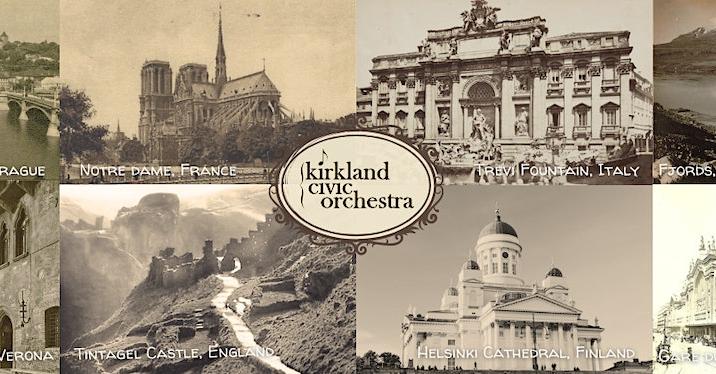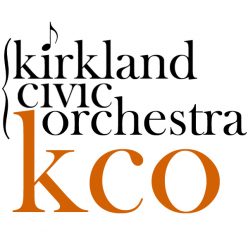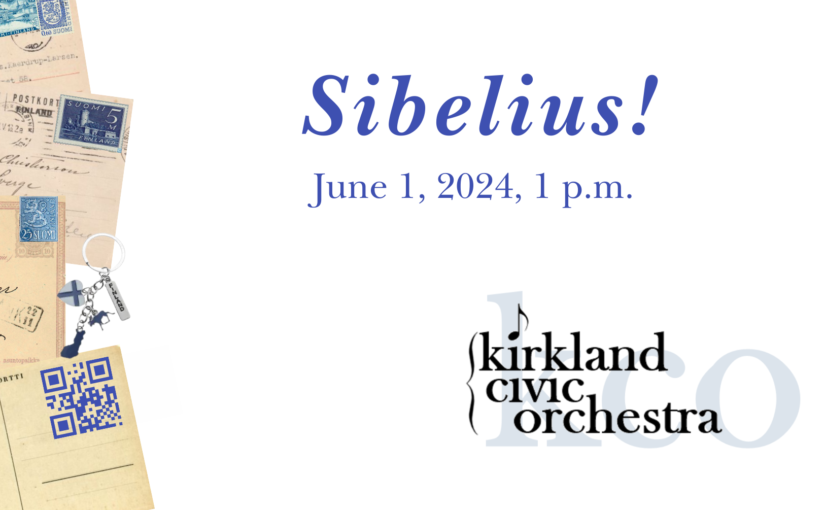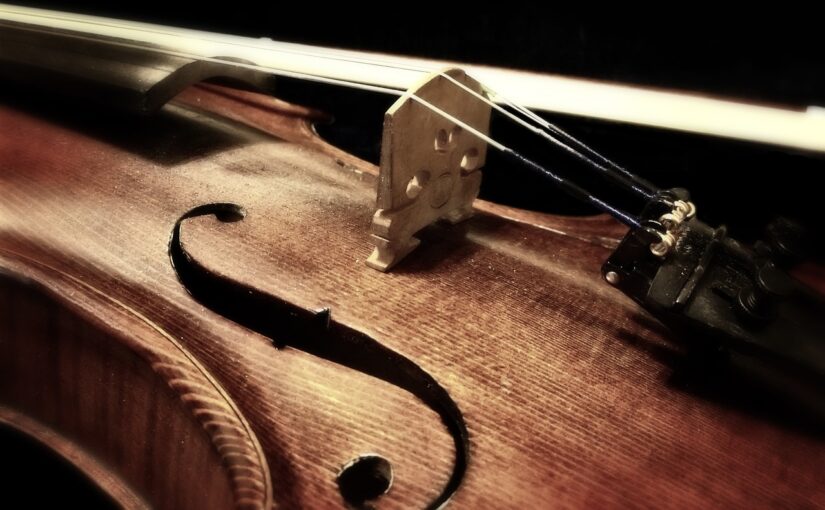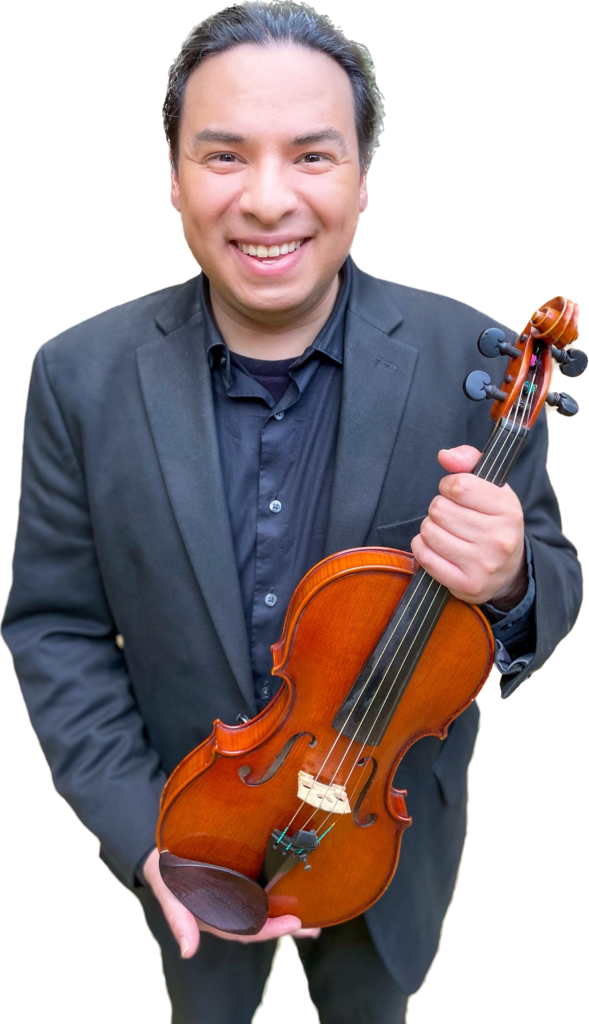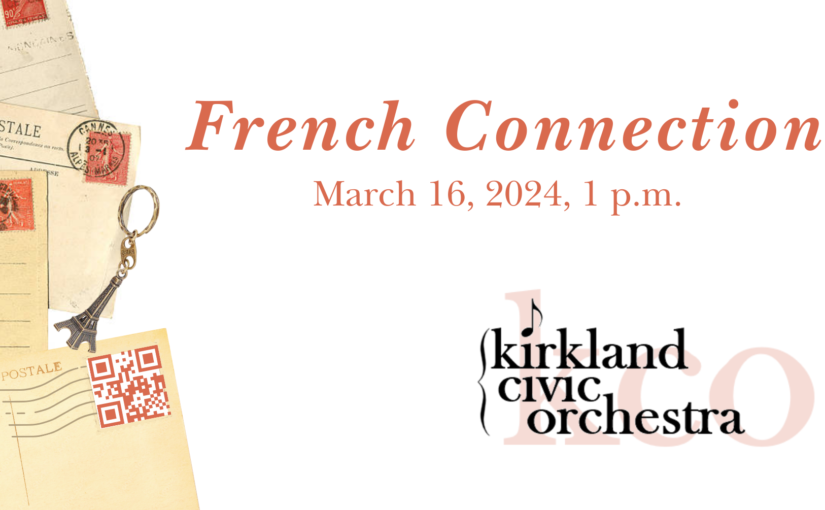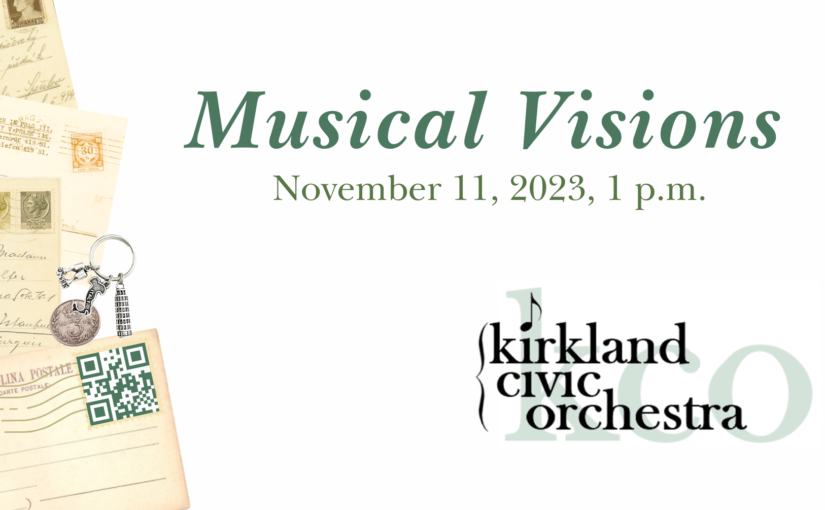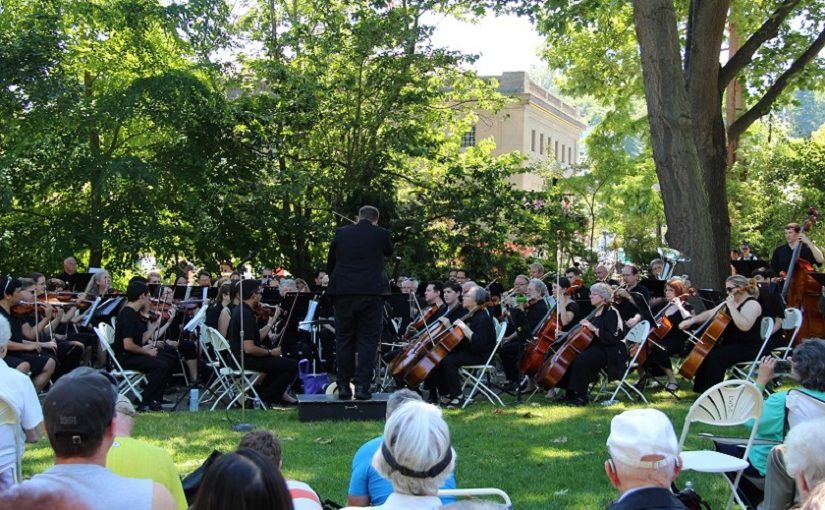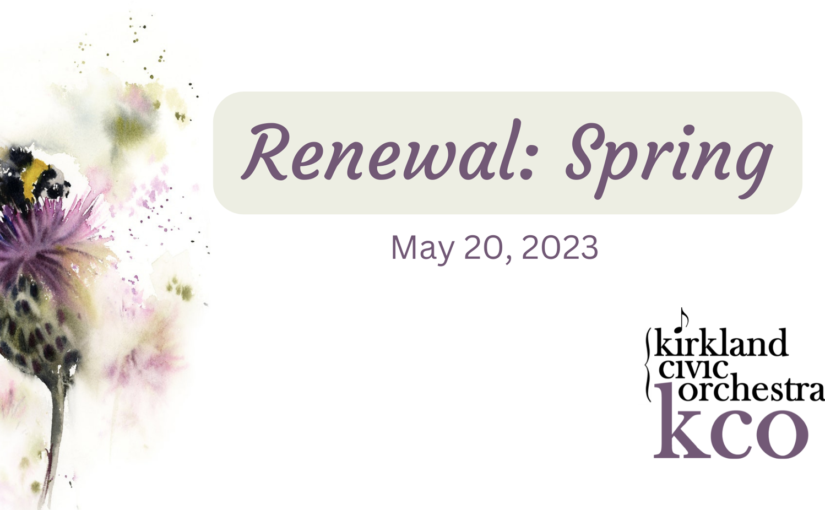- How did you start playing music? When did you start playing the violin?
- At what point did you decide maybe it was time to be a little bit more serious than a kid going through the woodwind section in band?
- What is the experience like for you playing with the orchestra or in a rock band?
- How would you explain the Symphonie espagnole, by Édouard Lalo. What do you like about it?
- Why did you choose this piece?
- How’d you come to know the orchestra?
- What are your other interests outside of playing music.
KCO: Let’s start with your origin story. How did you start playing music? When did you start playing the violin?
Luis Alcantara-Nenninger: Well, I started music when I was in maybe fourth grade. My aunt Marianne would come over and play our piano, and I thought that was amazing. “I need to learn something like that.” Shortly after, I began playing the clarinet. I played all the woodwinds and worked my way through the band. I didn’t like any of them.
Then we moved to a new school in sixth grade that had an orchestra. They had strings. I saw people walking out with violin cases instead. I told my mother that I want to try that. She said, “it’s your last instrument. Go for it,” and it stuck. I fell in love with the violin.
KCO: Where was this?
Luis: This was in Burnt Hills, New York, the capital region of New York, but we moved shortly after sixth grade.
My neighbor was a violin teacher, Dr. Solner, my first teacher. I went to him for many years until I moved from that school district. Then my mother found a new teacher through him who was recommended highly. I auditioned for his studio and got in. He helped shape me into the person and the musician that I am now. I stayed with him up through college. He was Josh Rodriguez at the Juilliard school.
We took a more serious approach. He recognized that I had a very good ear and picked up the violin very quickly compared to other people. I don’t know why exactly, but perhaps because of my training in band and on the piano, I progressed. I knew that you put your fingers down and the sounds get higher. That made more sense to me.
I was his student from around 15 to 21. I just fell more in love with the violin and how expressive it was, and how you can make cool sound effects. I just took to it really well, I guess, and I found that it was a way to express myself even more than just playing the piano, which was nice. The violin was just like “whoa, this is amazing. I can’t put it down.” I would sleep holding it sometimes just because I loved it so much.
KCO: Did you go to college and study music there?
Luis: I studied at the Manhattan School of Music.
KCO: When did you end up in Western Washington?
Luis: I ended up here about six years ago. I heard the music scene was awesome, and I decided to try it out. I’ve actually fell in love with the weather. So, I never left.
KCO: At what point did you decide maybe it was time to be a little bit more serious than a kid going through the woodwind section in band?
Luis: That’s a good question. I think probably when I started taking lessons with Josh Rodriguez at the Juilliard school. He pushed me, pushed me, pushed me, pushed me to play the violin more, to get into it.
Plus, I enjoyed just watching all the musicians coming in and out. I realized, oh, this is what I want to do. It’s just such an expressive form of communication. It’s nonverbal. It’s great. It transcends languages. That’s pretty cool, too. I just fell in love with music, and I knew that it was something really special, and something that I was probably meant to do.
I also feel like you’ve never really made it. You’re always just working for your next gig, your next job. Experience in music, it leads us different places. I started out playing Broadway shows. Then I realized I didn’t really like playing the same thing every single night, the same exact way. It was creatively stifling so I branched out and played in rock bands, jazz clubs, and classical orchestras, which are so fun. And ballets!
Every step gets me to the next place I’m supposed to be. There’s never an arrival point for me, really. It’s always the next experience you’re having with this instrument. You learn something about yourself during that, and then more about the instrument as well.
I realized I could make all kinds of sounds with this thing. I played a gig when they said play this like a cow would moo. I never thought I could actually do those kind of sounds, you know? For me, when I realized I wanted to do music, I was not set on just one path. I was set on a desire to experience as much of it as possible and as many different avenues of music as I can.
It certainly does take sacrifice to your family and your social life because when everyone else is free from work, you’re performing because that’s the entertainment they go to see.
Then, during the day, you’re practicing alone. A lot of the time, you’re more alone. I feel like the concerts are the glamor part, and it is maybe 10% of music. And the rest of it is just practicing a little thing, and whatever else, like driving in the car.
KCO: Are your parents musicians at all?
Luis: No, they are not. They are both attorneys. I’m so lucky because they have been incredible supporters of the arts and music in general. Every concert I ever played, they were in the front row recording me with a video recorder. They were so proud of my music, and what I was doing with it. I’ve been so fortunate to come from a family that supports me 100% with music while having no understanding of it. I’ll be talking about music to them, “I missed a crescendo. I missed a couple accents.” And they say I don’t know what that is, but it sounded great.
KCO: You mentioned playing in rock bands, what is the experience like for you playing with the orchestra or in a rock band?
Luis: It feels like everything aligns for a second, nothing else matters in the world except for that music. The orchestra is such a big group of people coming together, all breathing together, all moving together. It’s really something special there. That doesn’t happen in every day in life.
I feel that sometimes, especially if you come from playing with bands rock bands and stuff, everyone’s kind of in their own little bubble a little bit.
It’s nice to translate what we learn classically over to other forms of music too. Playing sweetly and dolce, maybe expressive with a little solo lick, and then also playing like the aggressive rock player. It is fun and it scratches a different itch, I guess you could say.
KCO: When you’re playing in a rock band, are you playing the violin?
Luis: I play the viola in a couple rock bands, and I also play violin in one as well. In the rock band, I feel like the bass guitar is what we rely on almost all the time for our rhythms, our intonation, because everything squeezes in towards the lower end. We definitely have that in our in-ear monitors. We crank the bass. We crank the drums sometimes not as much vocals, but definitely guitar and bass are our rocks in the rock band setting, for me personally. That’s what I like to hear.
KCO: You’re going to be playing the Symphonie espagnole, by Édouard Lalo. How would you explain the Symphonie espagnole? What do you like about it?
Luis: What do I like about it? Oh gosh, this is a deep question.
The piece comes right at you. You’re just blown right out of a gun. There’s no long introduction like in other concertos where it’s a long orchestra introduction, flowing and meandering around. Or, one where the soloist just seamlessly melts in. In the Lalo, the soloist makes us feel, “I am here. We are ready to have some fun.”
I love the expressive nature of it all and the excitement it has right from the get-go. It’s such an exciting piece, but it’s also really emotional music because Lalo was Spanish, even though he was born in France. He was Spanish.
He has passion in his music, a lot of it. And this is one of his most played works too, so I’m really excited to kind of dip my toe in the legacy of it.
I would say people who don’t know music might consider it more like a story. It starts out with the Allegro. It’s really quick and fast. Then we slow down in the Scherzando movement, which is a little bit dance-y. Then, the Intermezzo comes in. That’s kind of like a singer, like if you went to a concert that night and saw a singer. The Andante movement is almost a funeral march. It’s very sad. It’s almost the end of the piece. It slows down a lot. It’s like you’re tired after going out dancing or whatever. Then you have that Rondo movement, which is like the next day where you wake up, and you’re remembering all the fun you had. It’s kind of like a story in that way.
I try to think of it in terms of portraying different events. I know it was written with folk music and themes of Iberia in mind. That’s part of it as well. I was born in Chile, South America. I feel the Latin flare. I play it more closely to how it is played in Latin America, then how it is played in American orchestras. There are things that I do that people wouldn’t do perhaps, or choices I’ve made that other people don’t do. But I’m excited, and for me, it makes it more of a story.
This piece kind of gave birth to all these French composers writing Spanish music like Bizet. It’s just really interesting. It might have influenced Tchaikovsky’s violin concerto, believe it or not. I think it was in a letter or some obscure writing of Tchaikovsky, where he mentioned that Lalo had influenced his concerto, the violin concerto, particularly the last one.
KCO: Why did you choose this piece?
Luis: I just felt like it has so much to say, and it’s such an adventure from start to finish. I’ve dreamed of playing this piece with an orchestra. When I got the opportunity and the chance to play it, I said yes immediately. I cleared my schedule just to play it. For me, I’ve always wanted to play it, so it’s a dream come true.
Also, I feel it is a little bit in my blood because Chile was colonized by Spain. So, part of me has Spanish in there somewhere. I feel a connection to this piece and especially the flare of it, the theatrical element of just sinking into the really delicious slow stuff and just letting my fingers fly on the fast stuff. I feel like it’s almost coming from me in a way.
The way I interpret it is different from other people’s interpretations, and I love that. It’s such a special piece to me personally. Growing up, I would listen to this on repeat. Every version I could find just repeat, repeat, repeat. So, it’s been in my blood for a while and I’m really just excited to get a chance to play it.
KCO: How’d you come to know the orchestra?
Luis: I play in a string quartet called the Emerald City string quartet with Libby Landy, the principal viola of the KCO. We’re really good friends. I adore her, and she got me this opportunity. She suggested me for it.
KCO: What are your other interests outside of playing music.
Luis: I would consider the rock gigs fun for me right now. I play in a string quartet for King Youngblood. He’s an up-and-coming artist. He’s a fantastic singer songwriter genius extraordinaire and everything. He has pulled us in as part of his string section. I play the viola so I’m loving that.
But in my spare time, I really like to spend time with my family because they are so important to me. I have a twin brother. I have a little sister with two kids and my parents are all back in New York still. When I can I love to spend time with them.
I am still very close to my aunt Marianne. I consider her like a second mother to me. She’s been there for a lot of musical things for me. If I have any musical question, should I play something this way or that way, she’ll help me figure out what sounds best.
I also like to longboard. It’s like a skateboard but longer for going down hills. I like to do that in my spare time as well when it’s nice outside.
KCO: Whoa, you definitely have to wear those special gloves with the pucks on them for protection.
Luis: Oh, I wear all the pads. I wear the helmet. I “suit up” as they say in the sports. It’s all about protection.
I think about my hands more than most people probably would. Sometimes I think I can’t do something because I might hurt my fingers, or I don’t want to lift something up today because I need to save my energy for practicing. My brother calls me ninja fingers because as musicians, we train those little muscles in ways other people don’t, so we can open jars no problem. Our fingers are so strong. My glove size is like a half size bigger on this (fingering) hand than on this (bow) hand because of the violin.
But I really do love music. It’s such a gift. I feel like we’re so lucky to play it in any capacity. People have asked what’s it like playing a Broadway show? Exactly the same way it felt to go on stage for a community orchestra performance of anything. You have that same excitement. You’re playing your heart out on stage. No matter what level you’re at. It’s all the same. There’s no difference from the bottom to the top. It’s all excitement. It’s all just that energy and that emotional connection and connection to other people as well, in a way that normally you probably wouldn’t connect with other people.
KCO: That’s great Luis. I really appreciate you time and energy.
